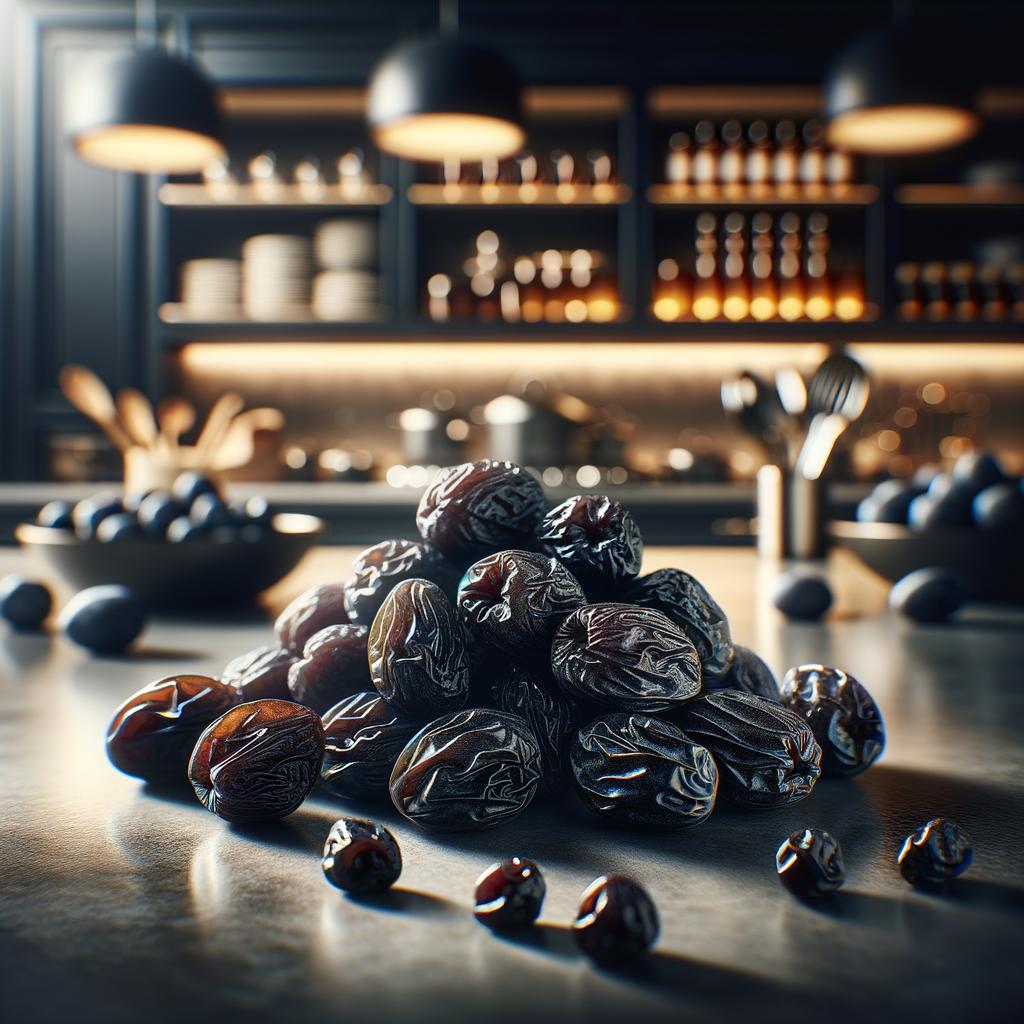Prunes

Description
Prunes, often referred to as dried plums, are a culinary delight with a history as rich as their deep, purple hue. These wrinkled, oval-shaped gems are a blend of sweet and tart flavors, with a chewy texture that melts in your mouth. The unique, concentrated taste of prunes is a result of an intricate drying process, distinguishing them from their fresh counterparts. Prunes are not just dried plums; they are a specific variety of plum that dries without fermenting when left on the tree. This unique characteristic sets them apart from other dried fruits.
Primary Uses
Prunes are a versatile ingredient, often used in both sweet and savory dishes. They are a staple in many traditional dishes, from the hearty stews of North Africa to the sweet pastries of Eastern Europe. Prunes are also often used in compotes, desserts, and sauces, adding a depth of flavor that enriches the overall dish. Apart from their culinary uses, prunes have long been recognized for their medicinal properties, particularly for aiding digestion. They hold cultural significance in various regions, with the annual "Prune Festival" in France being a testament to their importance.
History
The history of prunes is as intriguing as their flavor. Originating from the areas surrounding the Caspian Sea, these fruits were savored by the nobility in ancient times. Prunes were a favorite of Louis IX, King of France, who is said to have carried them on his journeys as a fortifying snack. Over time, prunes traveled the Silk Road, gaining popularity in the Middle East and Europe. In the 19th century, French clergymen brought prunes to California, where they flourished and became a significant part of the state's agricultural economy. There's an old wives' tale that prunes were once considered a "forbidden fruit," and were only allowed to be consumed by royalty because of their rich, luxurious taste.
Nutritional Information
Prunes are a powerhouse of nutrition, packed with a host of vitamins, minerals, and fiber. They are particularly high in Vitamin A, essential for eye health, and Vitamin K, crucial for bone health. Prunes are also rich in potassium, iron, and dietary fiber, making them a healthy choice for heart and digestive health. Compared to other dried fruits, prunes have a lower calorie count and a lower glycemic index, which makes them a better choice for those managing their weight or blood sugar levels. Their antioxidant properties have been linked to a reduction in inflammation and protection against chronic diseases. It's no wonder that this humble fruit, with its romantic history and exceptional nutritional profile, continues to be cherished in kitchens around the world.

